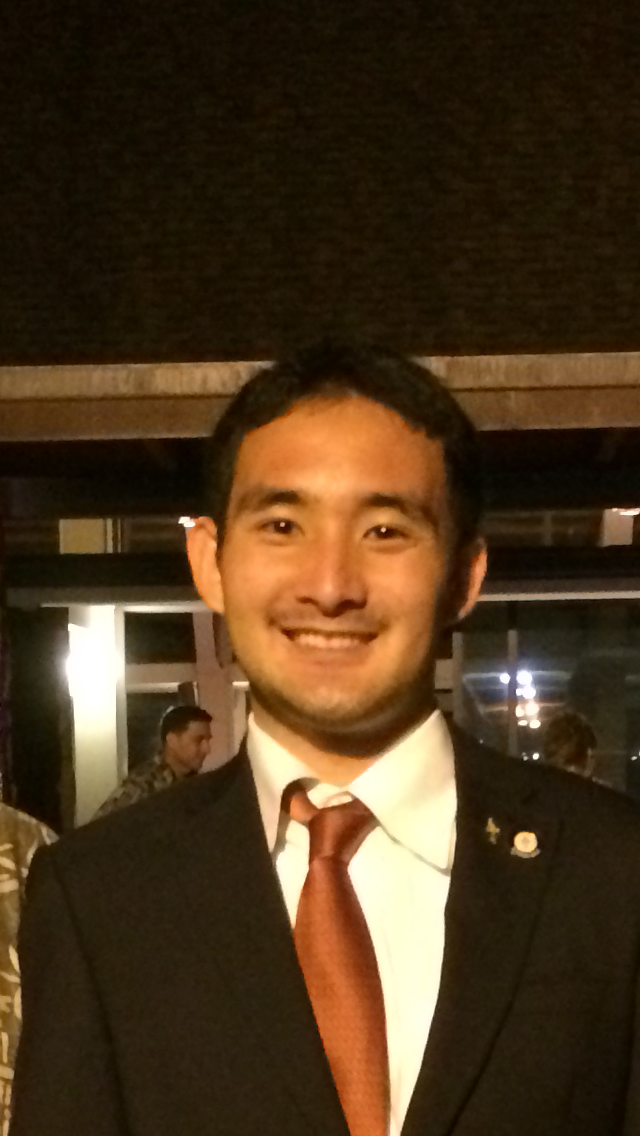

Brendan Seto ’18 is a statistics major. His thesis focuses on causal inference. His thesis advisor is Professor of Statistics Nicholas Horton.
Q: What is your thesis about?
A: I wrote my thesis on causal inference. It is an expository overview on determining causation as opposed to association. The material covered in my theses is similar to the information that would be covered in one or two classes or early graduate-level class. The topic of causal inference is briefly covered in undergraduate statistics. Professors at the undergraduate level will tell you there is a difference between causation and association, but they will not necessarily tell you what it is. My mother teaches statistics at a medical school in Hawaii, and she is using my presentation as a lecture in her class.
Q: Where did you get the idea for your thesis?
A: Professor Horton suggested the topic to me, and the more I read about the topic the more interested I got. I am interested in medicine, and in medicine, causation is more important than prediction.
Q: What was the timeline for this project?
A: I started doing readings over the summer and continued doing a lot of reading all throughout first semester. I read some foundational articles and causal inferences textbooks. I then started writing at the end of first semester and plan to be finished with it soon.
Q: How long did it take for you to put it all together?
A: I did the readings in big chunks, so I would do several hours’ worth of reading three to four times a week, and then the writing component was more spread out. Professor Horton and I have certain standards, and I worked until I reached them. The writing process was not very structured, and Professor Horton would tell me to keep doing what I was doing, and if the work is good, we will keep it, and if it’s not, we will do more work and make it better.
Q: What was the hardest part?
A: Although the looseness of the schedule helped me and allowed me to do what I wanted and needed to do for this project, the lack of structure was also challenging. It was at times hard to find a set path or I would wonder if what I was doing was what I should be doing.
Q: What were the major roadblocks?
A: The only major roadblock was that I had initially planned on writing another paper on the topic to submit to a journal, but I decided early on in the year that I did not have time for that.
Q: What was your favorite part of writing a thesis?
A: My favorite part of the process was the lack of an upper bound. I was able to explore and work on what interested me. It wasn’t like taking an exam where there are set requirements and specific scores warrant certain grades. I was able to freely investigate the topic, which can be challenging, but it allowed me to work without limits and see what I could accomplish.
Q: What’s the most valuable lesson you learned from writing a thesis?
A: I would say the most important thing I learned was how to operate with that freedom and lack of requirements. I learned to set smaller goals for myself.
Q: Who helped you with your thesis?
A: Professor Horton was a great help throughout the process. He was on leave first semester, but he provided me with a lot of resources to read. He also gave me suggestions on where to focus within the topic of causal inference and ensured throughout the process that I was on the right track.
Q: What’s next for you?
A: I am interested in medical research, and causal inference is the basis of medical research because it determines why something happens as opposed to what will happen. For example, in the context of medicine, if a patient comes in with a heart attack it is important to determine what caused the heart attack as opposed to discovering if the patient will have a heart attack. Looking at causes is critical in terms of medical research, which is what I am interested in.
Q: Do you have any advice for future thesis advisors?
A: Do something you are interested in! You have to put a tremendous amount of time into the project, and in my case I had to do a lot of reading, so if you are going to put in all this work you better make sure it’s something that you love and want to learn more about. I also had to write a lot more than I’m used to, so I would also advise that there is a lot of writing needed to complete a thesis.